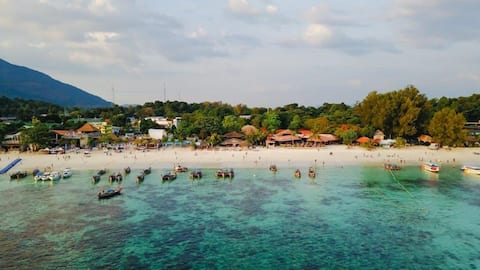Bangkok urges remote work amidst air pollution crisis
What's the story
Bangkok grapples with a severe air pollution crisis, prompting the city to advocate for remote work as a precautionary measure. The hazardous air quality, exacerbated by PM2.5 particles, has propelled Bangkok into the ranks of the top 10 most polluted cities globally. The alarming situation has led authorities to take swift action, urging cooperation from businesses and organizations for the well-being of the city's 11 million residents.
Urgency
Urgent measures implemented
In response to the escalating air pollution crisis, Bangkok's governor, Chadchart Sittipunt, has mandated that all city employees work from home on Thursday and Friday. The directive, affecting over 60,000 individuals, aims to mitigate the health risks associated with the anticipated unhealthy levels of PM2.5 particles in at least 20 of Bangkok's 50 districts. The decision underscores the severity of the pollution crisis and the need for immediate action.
Ranks
Bangkok's disturbing global ranking
The severity of Bangkok's air pollution crisis has been highlighted by its inclusion in the top 10 most polluted cities globally, according to air monitoring website IQAir. With PM2.5 levels surpassing the World Health Organization's annual guidelines by over 15 times, health concerns loom large. The alarming data underscores the urgent need for collaborative efforts to address the pollution crisis and protect the well-being of the city's populace.
Response
Lingering pollution threat and government response
As Bangkok grapples with hazardous air quality, exacerbated by calm weather conditions, the pollution crisis is expected to persist until February 16. The government's commitment to tackling air pollution is evident in its recent endorsement of the draft Clean Air Act. With the specter of adverse health effects, the urgent court order to devise an air pollution plan within 90 days reflects the gravity of the situation, making pollution control a national priority.
Struggle
Health impacts and ongoing struggle
The adverse effects of air pollution in Thailand extend beyond the current crisis, with at least two million people requiring medical treatment in 2023. The perennial issue, fueled by agricultural practices and industrial emissions, underscores the need for sustained efforts to combat pollution. With the government's pledge to prioritize this crisis on a national level, Bangkok's struggle against air pollution has become a microcosm of a broader, urgent environmental challenge.
